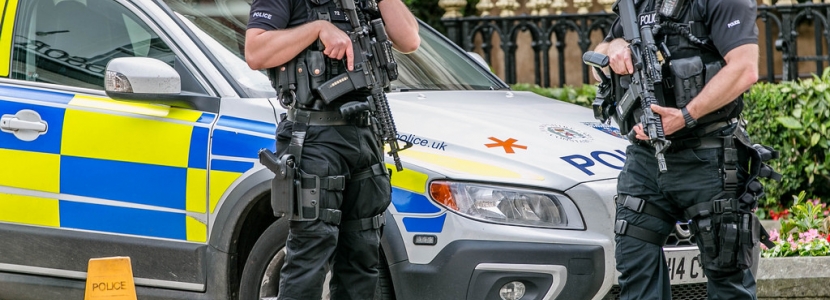
Today's Times reports proposals from the National Police Chief's Council to routinely arm police in rural areas in a response to the increased terror threat. The public, and indeed most police officers, have always been opposed to having routinely armed police on Britain's streets. An increase in terrorist activity at home and abroad over recent years has shifted that thinking, but not changed the underlying reluctance by most of the population to see all police officers regularly carrying guns.
Thankfully, despite a number of high profile attacks in the UK and elsewhere the risk to any individual from terrorism remains small. All police officers, armed or unarmed of course have a duty to protect the public from such threats, but there is also a much bigger day job to be done. When surveyed for the Thames Valley Police & Crime Plan it is clear that the greatest concern of the public was burglary (nearly 2,000 of 3,476 people questions raised this as a concern), and more generally what might be considered 'traditional' acquisitive or violent crimes remain the top of people's lists.
Whilst the nature of crime is undoubtedly changing and the use of firearms will remain an operational matter, I am firmly of the view that the media reports today go too far in suggesting that routine arming of officers should be the new norm in Britain.
The argument is that in rural areas Armed Response Vehicles (ARVs) could take too long to arrive. As a result an option considered is that officers in more remote locations should routinely carry hand guns. Whilst confidence in the police remains high for most of the population and many people rightly see the deployment of armed officers as reassuring, I believe the is largely because the police trusted to proportionately judge the level of threat.
It is also true, certainly in the case of the excellent armed officer working in Thames Valley, that those officers who do carry guns still maintain all of the capabilities and responsibilities to assist the public with other day to day policing matters. They should not be seen as so specialist that they lose the ability to engage with communities and deal with the public's every day needs.
Across Oxfordshire, Berkshire and Buckinghamshire the Force has locally funded an increase in the number of ARVs to improve capacity. This means that despite covering 2,200 square miles including some very rural areas, response times remain impressive for armed officers when they are needed. This naturally comes at a cost, but so does the training and arming of many thousands of other officers, not to mention the cost that I believe would be paid in the reduction of public trust and moving away from traditional policing methods.
Of course we live in a dangerous world, and there are sadly many cases where we need our police to be armed and to use potentially lethal force - you only have to look at Oxford over the recent bank holiday weekend. However thankfully the default option for all officers, including those of armed response officers, is to avoid force where possible (lethal or otherwise).
The real answer is that forces should invest properly in a proportionate armed capability and allow neighbourhood teams to do what they do best, which is focus on supporting local communities and earning the trust that British policing is famous for.

